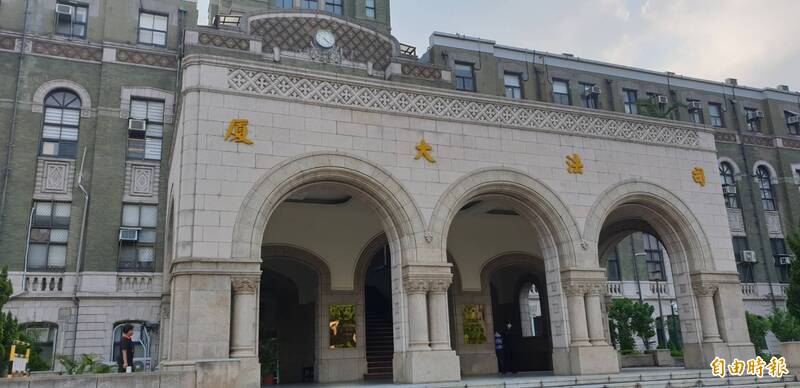The prosecutor and current lawyer Wang Senrong who once undertook the "319 shooting case" was reported for traffic violations and received a ticket, and the lawsuit was also lost. He accused the public of violating traffic regulations that "infringes the right to privacy". On the 28th, he petitioned for constitutional interpretation and advocated the constitution The court should declare the provision unconstitutional; the case is accepted.
(Photo by reporter Yang Guowen)
[Reporter Yang Guowen/Taipei Report] The prosecutor and current lawyer Wang Senrong who once undertook the "319 shooting case" was reported twice for traffic violations and fined a total of 1,800 yuan. He believes that the "reporter" violated the right of privacy and violated the constitution, and requested the cancellation of the ticket , were all adjudicated against.
Wang Senrong believes that the public reporting system stipulated in Article 7-1 of the Road Traffic Management Penalty Regulations violates the right to privacy and violates the principle of proportionality.
The case has been accepted.
Wang Senrong is the 36th graduate of the judicial officer. When he was a prosecutor of the Tainan District Prosecutor's Office, he became famous for his investigation of the 319 shooting case. After being transferred to the Kaohsiung District Prosecutor's Office, he was transferred to a lawyer in 2010.
Please read on...
On the morning of February 27, 2020, Wang Senrong drove past the exit of Qinan Road, Beishang Nanzi District, Kaohsiung City National Highway No. 1, and was arrested by the driver behind for violating "turning or changing lanes without following signs, markings, and signs" The recorder took images and filed a report, and was fined 600 yuan. On the morning of the 4th and 29th of the same year, Wang was driving by the intersection of Sanduo 1st Road and Jianjun Road, Lingya District, Kaohsiung City, and was fined for changing lanes without turning on the direction lights. The public videotaped the report, and was fined 1,200 yuan this time.
Wang Senrong filed a lawsuit against the verdict and pointed out that if law enforcement officers use non-fixed scientific instruments to collect evidence and violate regulations, the duty location and items should be approved by the supervisor in advance, but Article 7-1 of the Road Traffic Management Penalty Regulations actually empowers the public Using mobile phones or driving recorders to take pictures or record videos can search for evidence and report to the public all the time, which has violated the people's right to privacy and violated the principle of proportionality.
In addition, the time and date recorded on the driving recorder screen that he was accused of, because it is a private device, has not been inspected regularly, and there may be errors. It is illegal to use it as the fact of his violation, and the ticket should be revoked.
However, after the trial, the Kaohsiung District Court and the Kaohsiung High Administrative Court both found that Wang Senrong's driving violations were proved to be clear, and the public's report was also well-founded in the law and not unconstitutional. They all sentenced him to lose the lawsuit.
Wang Senrong was dissatisfied and filed a petition with the Constitutional Court on the 28th of this month for constitutional interpretation, arguing that Article 7-1 of the Road Traffic Management Punishment Regulations should be unconstitutional, and the Constitutional Court should declare this provision unconstitutional.
Wang Senrong pointed out that this article has violated the right to privacy guaranteed by Article 22 of the Constitution. In addition, after the public can report violations, it has become the norm, and it has even been regarded as a profit-making channel. It runs counter to the spirit of the original legislation and violates Article 23 of the Constitution. The "appropriateness of purpose" and "necessity of means" of the promulgated principle of proportionality.
